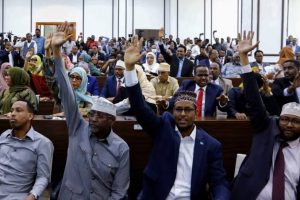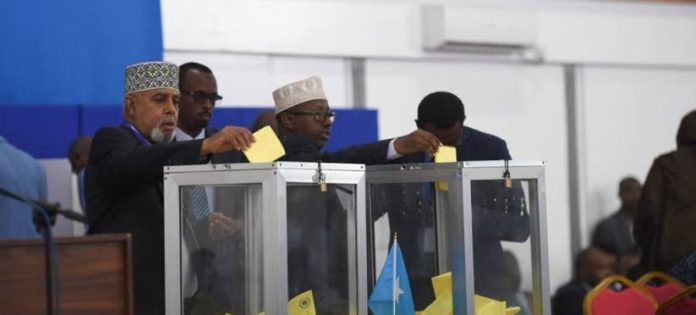Facebook Twitter (X) Instagram Somali Magazine - People's Magazine
In a landmark decision, Somalia’s parliament on Saturday approved amendments to its election laws, paving the way for a universal suffrage system. This transition replaces the existing clan-based indirect voting mechanism, allowing citizens to directly elect their president for the first time in over 50 years. The bill was overwhelmingly supported, with 169 members voting in favor, two against, and one abstention.
Key Features of the New Legislation
Direct Presidential Elections: Under the revised law, Somalia’s president will now be elected through a one-person-one-vote system, with the first such election scheduled for 2026.
Multi-Party System: The legislation introduces a multi-party framework, limiting participation to three political parties. This aims to enhance political inclusivity and move away from clan-based affiliations.
Challenges to Implementation
Despite widespread parliamentary support, the new legislation has faced opposition from Puntland and Jubaland states, as well as criticism from former Somali presidents. However, President Hassan Sheikh Mohamud, elected through the previous system in 2022, has championed the reform, citing it as critical to Somalia’s democratic progress.

Background and Significance
For decades, Somalia has relied on an indirect electoral system, where clan delegates select parliamentary members who then elect the president. The shift to universal suffrage marks a significant departure from this system and represents a step toward consolidating democracy in the East African nation.
Looking Ahead

As Somalia prepares for its 2026 presidential election, challenges such as state-level opposition and logistical hurdles remain. However, this reform is seen as a critical step in empowering citizens and fostering greater political accountability.

